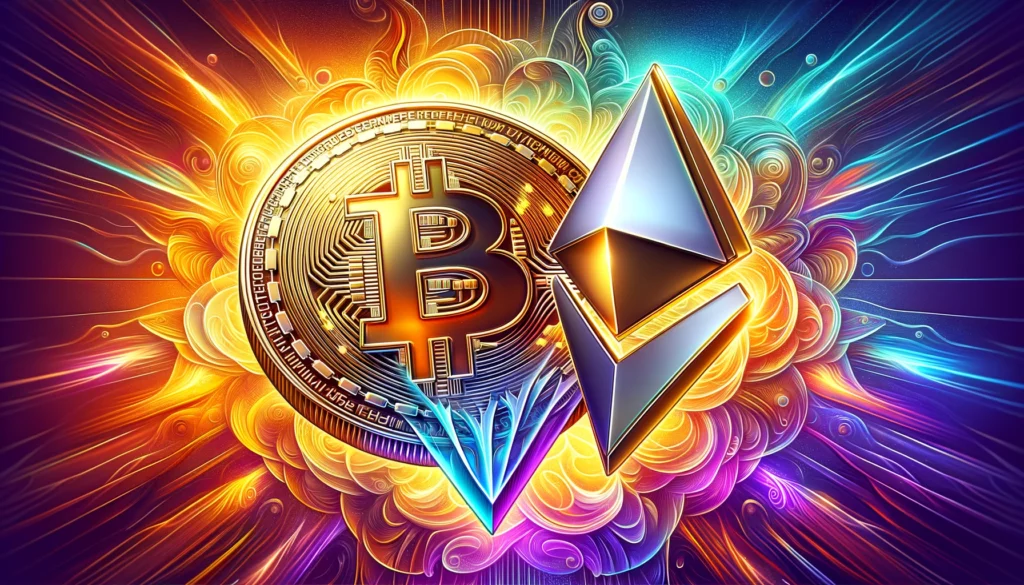Cryptocurrencies are digital or virtual currencies secured by cryptography and powered by blockchain technology, which is a decentralized, transparent ledger of all transactions. This technology enables the creation of various financial products without the need for central authorities like banks or governments.
The open-source nature of blockchain fosters innovation and has applications beyond cryptocurrencies, such as smart contracts and decentralized finance (DeFi). While transactions are pseudonymous and publicly recorded on the blockchain, offering transparency, tracing them back to real-world identities can be complex.

What are Cryptocurrencies Used For?
Cryptocurrencies have evolved from a novel form of digital money to a wide range of applications across various sectors. Here’s a brief overview of what they are used for:
- Privacy: Supporting transactions with enhanced privacy features.
- NFTs: Buying, selling, and trading unique digital assets and collectibles.
- Investments: As a speculative asset with potential for value appreciation.
- Remittances: Facilitating cheaper and faster cross-border money transfers.
- Smart Contracts: Automating agreements and transactions without intermediaries.
- Payments: Making digital transactions directly between peers without intermediaries.
- Asset Tokenization: Representing real-world assets digitally for easier and fractional
- DeFi: Offering decentralized financial services like lending, borrowing, and earning interest.
- Financial Inclusion: Providing financial services to the unbanked or underbanked populations
- Governance: Voting and decision-making in decentralized organizations or applications.
Top 7 Cryptocurrencies to Watch in 2024
The cryptocurrency market, featuring over 24,630 projects, is expected to grow to $4.94 billion by 2030, driven by innovation, adoption, and regulatory developments.
Here are seven cryptocurrencies that stand out for their potential impact and innovation,utility, and community support, making them ones to watch in 2024 in the blockchain space:
Bitcoin (BTC)
Market cap: $1.29 trillion
Bitcoin (BTC), created in 2009 by Satoshi Nakamoto, is the first cryptocurrency, built on a blockchain for secure, decentralized transactions.Utilizing a proof of work mechanism, it prevents fraud and incentivizes network maintenance.
From a price of about $500 in May 2016, Bitcoin’s value surged to approximately $68,719 by March 5, 2024, marking a growth of 13,644%.
Ethereum (ETH)
Market cap: $435.40 billion
As a pioneering blockchain platform and cryptocurrency, Ethereum is highly valued for introducing smart contracts and supporting non-fungible tokens (NFTs), revolutionizing decentralized applications (dApps) and digital asset ownership.
Ethereum’s price surged from about $11 in April 2016 to approximately $3,798 by the end of March 2024, marking a 34,425% increase.
Binance Coin (BNB)
Market cap: $64.43 billion.
Binance Coin (BNB), launched in 2017 as a utility token for the Binance cryptocurrency exchange, has significantly expanded its use cases beyond just facilitating trades. It’s now utilized for trading, payment processing, and booking travel, among other uses. BNB can also be exchanged for other cryptocurrencies like Ethereum or Bitcoin.
From an initial price of $0.10, BNB’s value surged to around $420 by late March 2024, marking an impressive gain of 419,861%, reflecting its growing utility and investor confidence.
Solana (SOL)
Market cap: $$57.58 billion
Solana is a blockchain platform optimized for DeFi, dApps, and smart contracts, utilizing a unique hybrid of proof-of-stake (PoS) and proof-of-history (PoH) for fast and secure transaction processing. SOL, its native token, underpins the ecosystem, enabling transactions, staking, and governance within the platform.
When Solana (SOL) launched in 2020, its initial price was $0.77. By late March 2024, SOL’s price had risen to approximately $137.81, marking an impressive gain of 17,797%
Polygon (MATIC)
Market cap: $ $11.49B
Polygon, originally known as Matic Network, is an Ethereum token that powers the Polygon Network, a Layer 2 scaling solution for Ethereum. It aims to provide faster and cheaper transactions by using side chains parallel to the Ethereum main chain, enhancing scalability without sacrificing security or decentralization. MATIC is used within the network for governance, staking, and transaction fees.
Since its 2019 launch at $0.00263, Polygon (MATIC) saw rapid growth, peaking over $2.40 in 2021, marking a 91,155% increase.
How To Buy Cryptocurrency?
Buying cryptocurrencies like Bitcoin, Ethereum, Binance Coin, Solana, and Polygon involves a few standard steps across most platforms, with slight variations depending on the specific exchange or broker you choose.
Here’s a general guide:
Choose a Cryptocurrency Exchange or Broker
Select a reputable platform that supports the cryptocurrencies you’re interested in purchasing. Popular exchanges include Coinbase, Binance, Kraken, and Gemini.
Create an Account:
Sign up for an account on the chosen platform. You’ll typically need to provide personal information and verify your identity to comply with regulatory requirements.
Deposit Funds:
Once your account is verified, deposit funds using one of the supported methods, which may include bank transfers, credit/debit cards, or even other cryptocurrencies.
Buy Cryptocurrency:
Navigate to the trading section of the platform, find the cryptocurrency you want to purchase, and execute a buy order. You can usually choose between a market order (buy immediately at the current market price) or a limit order (set a price at which you’re willing to buy and wait for the market to reach that price).
Secure Your Cryptocurrencies:
Consider transferring your cryptocurrencies to a private wallet for enhanced security. Wallets can be software-based (like mobile or desktop apps) or hardware-based (physical devices that store cryptocurrencies offline).
Monitor Your Investment:
Keep track of your cryptocurrency investments, as their prices can be highly volatile. Use tools and alerts provided by the exchange or third-party apps to stay informed.
Remember, the process of buying cryptocurrencies involves risks, so it’s important to research and consider your investment carefully. Always use reputable platforms and be aware of the fees and security measures in place.










